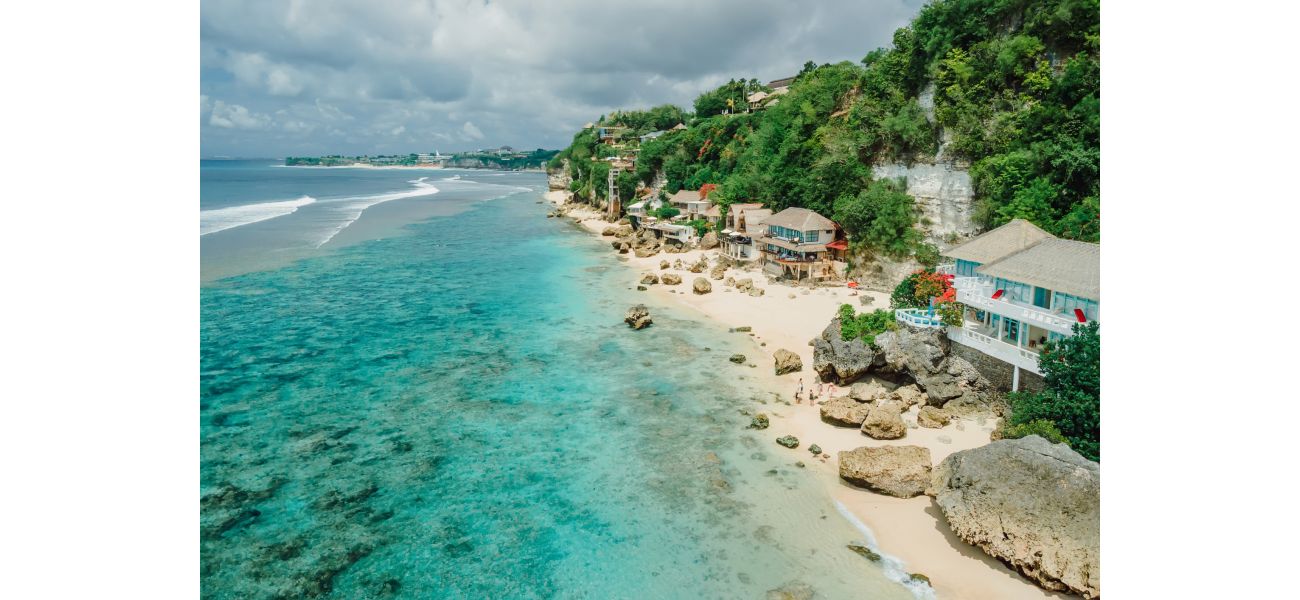Bali will no longer allow the construction of new hotels and nightclubs due to the high influx of tourists.
Indonesia is putting a hold on construction of new hotels, villas, and nightclubs in Bali's top tourist areas for 2 years.
September 10th 2024.

Indonesia is taking steps to address the issue of overtourism and overdevelopment in Bali by implementing a ban on new hotels, villas, and nightclubs in the island's most popular tourist spots. This decision, which is set to last for at least two years, aims to regulate the influx of tourists and maintain the sustainability of the island.
Amongst the many countries that flock to Bali, Australians have a special love for the island, with a staggering 1.2 million visitors in 2019 - three times more than any other nation. However, this year has seen an unprecedented increase in tourism, with the number of arrivals already surpassing the total for 2019 by the middle of the year. This has led to recent actions from local authorities to control the flow of tourists in order to preserve the beauty and culture of Bali.
In February of this year, a new "tourist tax" was introduced, requiring all foreign nationals to pay 150,000 rupiah upon entry to the region. This was just one of the measures taken to manage the overbearing numbers of visitors. The proposed moratorium on hotel construction, which could last up to 10 years, will put a stop to new builds of hotels, villas, nightclubs, and beach clubs in the areas of Denpasar, Badung, Gianyar, and Tabanan, as reported by Indonesia's national news agency Antara.
The decision to impose this ban was announced by Bali's interim governor, Sang Made Mahendra Jaya, who expressed concerns about the negative impact of excessive tourism. He pointed out the negative behavior of some tourists, such as getting drunk on cheap alcohol from unlicensed sellers, and how it affects the island's reputation. He also mentioned that the proposal was well-received by the central Indonesian government, as they have seen the negative impact of overtourism through viral posts on social media.
Governor Jaya emphasized that this ban is not only about regulating tourism, but also about preserving the local culture and agriculture, particularly rice farming, from being affected by land conversion. It is a step towards sustainable and responsible tourism, ensuring that Bali remains a paradise for generations to come.
Amongst the many countries that flock to Bali, Australians have a special love for the island, with a staggering 1.2 million visitors in 2019 - three times more than any other nation. However, this year has seen an unprecedented increase in tourism, with the number of arrivals already surpassing the total for 2019 by the middle of the year. This has led to recent actions from local authorities to control the flow of tourists in order to preserve the beauty and culture of Bali.
In February of this year, a new "tourist tax" was introduced, requiring all foreign nationals to pay 150,000 rupiah upon entry to the region. This was just one of the measures taken to manage the overbearing numbers of visitors. The proposed moratorium on hotel construction, which could last up to 10 years, will put a stop to new builds of hotels, villas, nightclubs, and beach clubs in the areas of Denpasar, Badung, Gianyar, and Tabanan, as reported by Indonesia's national news agency Antara.
The decision to impose this ban was announced by Bali's interim governor, Sang Made Mahendra Jaya, who expressed concerns about the negative impact of excessive tourism. He pointed out the negative behavior of some tourists, such as getting drunk on cheap alcohol from unlicensed sellers, and how it affects the island's reputation. He also mentioned that the proposal was well-received by the central Indonesian government, as they have seen the negative impact of overtourism through viral posts on social media.
Governor Jaya emphasized that this ban is not only about regulating tourism, but also about preserving the local culture and agriculture, particularly rice farming, from being affected by land conversion. It is a step towards sustainable and responsible tourism, ensuring that Bali remains a paradise for generations to come.
[This article has been trending online recently and has been generated with AI. Your feed is customized.]
[Generative AI is experimental.]
0
0
Submit Comment





